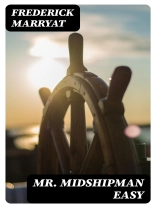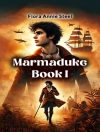In ‘Mr. Midshipman Easy, ‘ Frederick Marryat offers a vivid and engaging tale of a young man’s adventures in the British Navy during the early 19th century. The novel is characterized by Marryat’s keen observation and rich detail, weaving together nautical realism with the comedic misadventures of its protagonist, the naïve yet endearing Mr. Easy. As he navigates the trials of naval life, from enlistment to daunting battles, the story unfolds against a backdrop of growing maritime imperialism, reflecting the societal attitudes and values of the time, particularly regarding class and masculinity. Frederick Marryat, a naval officer himself, drew upon his personal experiences in the Royal Navy to create a narrative brimming with authenticity and insight. His literary career was significantly influenced by his own adventures at sea, alongside a desire to depict both the exhilarating and challenging aspects of naval life. Marryat’s firsthand knowledge enables him to produce a compelling mix of adventure and social commentary, establishing him as a pioneer of the maritime novel genre. ‘Mr. Midshipman Easy’ is not only a captivating adventure story; it serves as an important reflection on naval life in a transformational era of British history. Readers who revel in tales of resilience, growth, and humor will find Marryat’s work both enlightening and entertaining, making it a valuable addition to any literary collection.
About the author
Captain Frederick Marryat (1792–1848) was a British Royal Navy officer, a novelist, and an early pioneer of the sea story. He is best known for his semi-autobiographical novel ‘Mr. Midshipman Easy’ (1836), which presents a vivid account of the nautical life and adventures of a young naval officer during the Napoleonic wars. Marryat’s literary career commenced after an illustrious maritime service, during which he was a contemporary of renowned figures such as Lord Cochrane and served with distinction in the War of 1812 and other conflicts. Retiring from active duty in 1830 with the rank of captain, Marryat began a second career as a writer, drawing extensively from his naval experiences to craft his tales. His works are characterized by a realistic depiction of shipboard life, a liberal dose of humor, and didactic undertones that reflect his views on society and humanity. Marryat’s influence on later writers, particularly in the maritime genre, is well-acknowledged, with Joseph Conrad and Ernest Hemingway among those citing his impact on their work. ‘Mr. Midshipman Easy’ remains one of his most popular and enduring novels, recognized for both its historical significance and its storytelling prowess.












